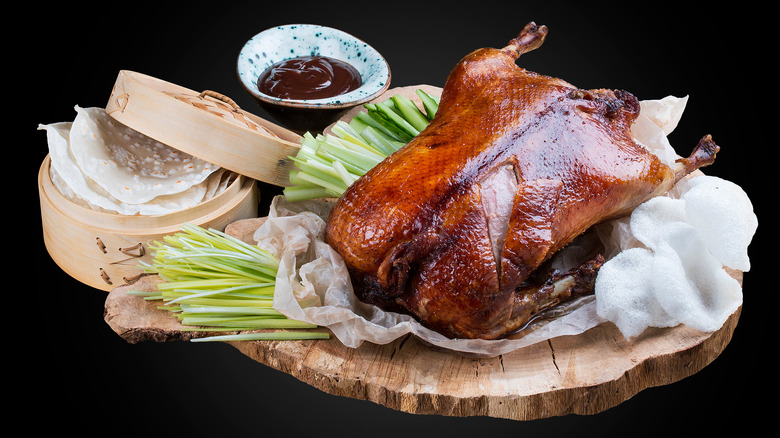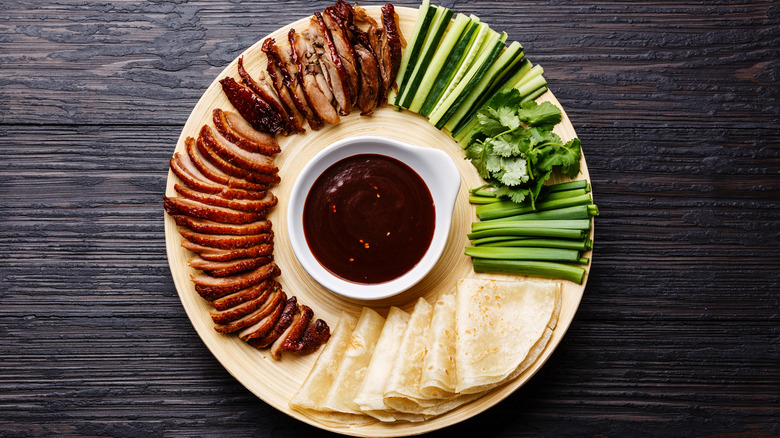Even Wolfgang Puck Was Initially Stumped By Peking Duck
If you've ever felt frustrated trying to master a complicated recipe like Peking duck, you are not alone. In the early 1980s, when Wolfgang Puck was an up-and-coming chef in Los Angeles, he says he struggled to master a dish that would soon become a specialty in his restaurant empire, Peking Duck. As part of a rapid-fire set of questions with Modern Luxury Angeleno, Puck admits he "threw away over 50 ducks" before getting the duck recipe right.
The difference between Peking duck and Cantonese roast duck includes a multi-step recipe that takes several days to accomplish. Each step is critical to achieving the burnished brown, crackly crisp duck skin and moist, roasted meat that are hallmarks of the dish. Because the finished duck must look as good as it tastes, some of the recipe steps are as critical for a perfect presentation as they are for the flavor of the dish. The skin must be separated from the meat while the duck is still raw and then coated with a special sweet solution of maltose to ensure browning. The whole duck then needs to be air-dried before cooking. These unusual procedures are just part of the learning curve that even experienced chefs like Puck struggle with.
A challenge worth accepting
A big part of what makes Peking duck so elaborate is the treatment of the duck's skin. In some other recipes, the fatty skin on the duck breast is scored to release its fat. That would ruin the finished look of Peking duck, however. Expertly preparing Peking duck calls for painstakingly separating the skin from the duck's body in one piece without creating tears. This helps the fatty skin render easily and creates famously crisp skin. Once the skin is loosened, it's seasoned inside and out, and painted with the sugary coating, but another critical step in ensuring the skin is as crisp as possible is similar to a simple trick for crisp chicken skin. That secret is all in letting the skin air dry instead of patting it down to remove moisture.
All the steps needed to perfect Peking Duck are not easy to master, and there are a lot of pitfalls involved. One little tear in the skin or a few too many minutes of roasting results might end in a less-than-perfect presentation, but not giving up pays off. We know that Wolfgang Puck eventually mastered the technique because you'll still see Peking Duck featured at many of his restaurants in many innovative combinations. It's a great reminder that practice and patience are what lead to success in the kitchen.

